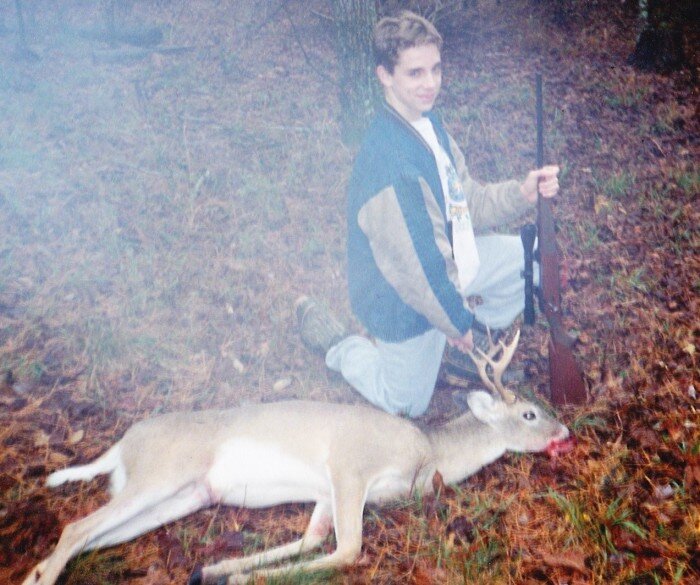Scouting or Scaring?
Hunters who can't get enough of the outdoors are big on scouting. And it makes sense. Anyone who knows his hunting territory intimately can hunt it more efficiently. But can you indulge in too much of a good thing? Is there such a thing as excessive scouting? Can your frequent visits encourage game to abandon your haunts? Maybe ... Maybe not. Don't you hate smart aleck answers like that? But it's true. It's possible to spook certain animals, particularly old males, from an area you frequent too often. Once spooked out, an old buck could stay out for weeks. But it's also possible to habituate them. They hear, see and smell you so often – to no detriment – that they come to virtually ignore you. National Parks are a case in point. If noisy, smelly, stumbling, bumbling humans spooked big bull elk, why do you see those big bulls lying about the lawns in Mammoth? If giant whitetails live in and among suburban homes, only to be run over by some soccer mom hauling her kids to school one day, they can certainly learn to tolerate you driving or walking daily through your 80-acre "farm." Can't they? Yes and no. There I go again with my indecisiveness. But it's true. Game can acclimatize to nearly anything, but no one can guarantee how long it will take. A fawn that grows up behind the barn, hearing cars and doors and shouting kids to no ill effect could grow into a six-year-old B&C 5x5 tolerating the same racket in the same places so long as no one chases it or unduly disturbs it. But if you start hunting an isolated 40 acres on which local deer have been quietly going about their lives, the sudden incursion of cars, hikers, dogs, etc. could chase them out. Just bumping a mature buck once from his core bedding area while inserting a trail camera could inspire him to stay away for months. It depends on whether he has a safer, quieter place to hole up. So how does this affect your scouting? Should you stay out completely? Enter daily and hope they get used to it? Sneak it? Go in boldly? Tough call. But your call. If I were hoping to hunt a small, quite core area this fall, I'd stay out of it from late August until ready to hunt. And then I'd hunt it only when conditions were perfect and I could leave as little scent as possible. I wouldn't want local deer to even know I'd been in the vicinity. If I were hoping to acclimate local deer to more disturbance, I'd only do so after the season and in conjunction with regular visits -- plus treats. In other words I'd show up the same day, same time, same vehicle and bring food. Or at least work on habitat projects like planting fields, filling water troughs, cutting brush. Loggers in north Idaho tell me they regularly watch wintering whitetails move into freshly cut timber before the saws have cooled. Over the generations local deer have learned that loggers, although noisy, bring tasty and nutritious lichens crashing within reach. Your deer can learn similar things about you. As for wilderness elk, sheep, even grassland mule deer that you can't acclimate because you live far, far away, I think it's best to stay out. A bachelor band of muleys summering above treeline will stay in the same small area for weeks on end, but if spooked they could move two or more basins in a jump, and then you've got your work cut out for you. Ditto elk, sheep and most wilderness denizens. It is possible to enter and delicately scout mountains with a spotting scope from afar, but few folks do this. Instead they ride, hike and prowl thither and yon looking for game. One unfortunate but uncontrollable reality of western hunting is that all your carefully laid plans for catching bucks on opening day are usually blasted when public land hunters arrive to set up camps and begin "scouting." Suddenly the quiet summer mountains are alive with strange new sights, odors and sounds. Fires get lit. Rifles get "test fired." Game moves out. This kind of scouting has just the opposite of the desired effect. You may eventually learn this, as I and millions of others have learned over the decades, but it won't matter because plenty of neophytes, as eager and ignorant as you once were, will be coming along to take over your role as the inadvertent spook. Of course, these days wolves are playing the same roll, harassing elk and deer and driving them into new locations overnight. You really can't count on any game patterns remaining consistent anymore. The solution? Instead of scouting for game, scout for habitat. Discover as many pockets of isolated habitats as you can and be prepared to work hard checking each of them during your hunt. Learn where the travel and escape routes are. Keep an open mind and think like a harassed elk or deer. Where would you go if wolves or humans were disturbing your peace? # # #











